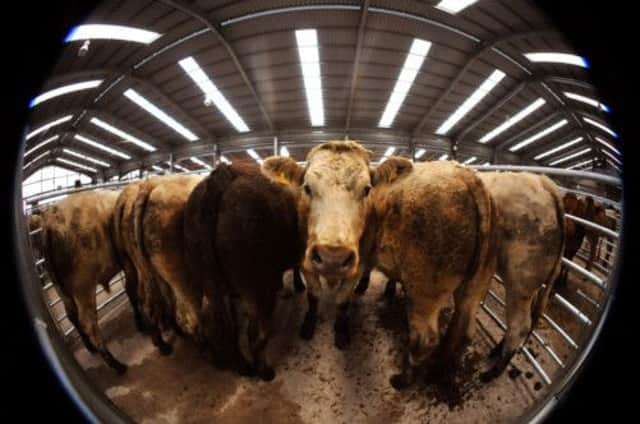Grow more beef and lamb, farmers urged


That was the view of Jean-Pierre Garnier, export manager of the English Beef and Lamb Executive (Eblex), who yesterday said exports of British beef and lamb were booming – to the extent that demand had outstripped supply.
Unless British farmers responded to the market demands by producing more, they faced missing out on an opportunity to establish themselves as suppliers of excellent-quality meat products to the global market, he warned.
Advertisement
Hide AdAdvertisement
Hide Ad“Exports are booming, with sheep meat exports showing good growth both now and in the longer-term,” Garnier told delegates at the Eblex annual conference in Warwickshire.
From January to August this year, sheep meat exports from the UK were up by 15 per cent, with exports to France – one of the UK’s major export markets – up by 3.8 per cent to 34,324 tonnes.
Meanwhile exports to China in the same period had increased by 231 per cent to 7,856 tonnes, while Norway had increased its imports of UK lamb by 115 per cent to 2,656 tonnes.
But that exceptional growth could not be maintained unless UK producers adapted their businesses to produce more, Garnier said.
“We didn’t have enough lambs to export to the European market this spring, meaning we were short in supply to Germany, Belgium and Holland,” he added.
“We shouldn’t think that keeping the market in short supply is the answer to higher prices. We should produce it properly and sell it.”
Garnier admitted some of the growth had been thanks to New Zealand sending more of their lamb to China, meaning there was less competition for UK lamb in the European market. But new export markets for UK lamb were also opening up, he added. “We now have many more markets available to us, such as Russia. We have one plant approved in Russia and a second one will follow next year.
“The UK is also approved for exports to the Saudis and we hope to export our first lambs next year.
Advertisement
Hide AdAdvertisement
Hide Ad“Our message to lamb producers is please produce more, because we don’t have enough to satisfy those markets.”
British beef exports had seen similarly successful growth over the previous year, with supplies of premium cuts in particularly short supply, he added.
The horsemeat scandal had driven up demand for home-produced beef in the UK, meaning the export market had been limited.
To fulfil the demand for quality British beef, Garnier said producers should think more carefully about optimising all parts of the carcase.
“We need to create the right product for the export market and the fifth quarter is a very important part of that. We need to step up the harvest of offal so the product is the best possible and we can get the best prices.”
The UK would export about 85,000 tonnes of offal in 2013 and there was potential to grow the market even more, which was excellent news for the industry.
“Volumes and values of offal exports are growing, particularly to Asia and Africa, but it doesn’t stop there for British beef and lamb.
“We have access to 69 countries and territories for lamb and 65 for beef. If we can produce the right volumes of quality product, the markets are there for us to take advantage of.”